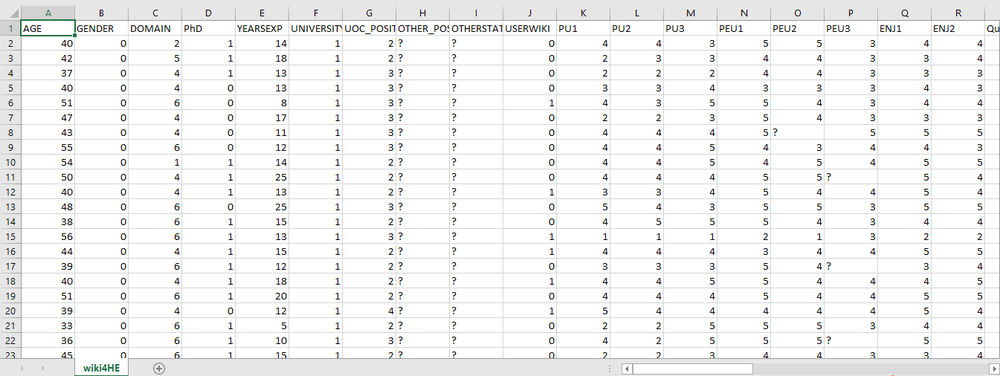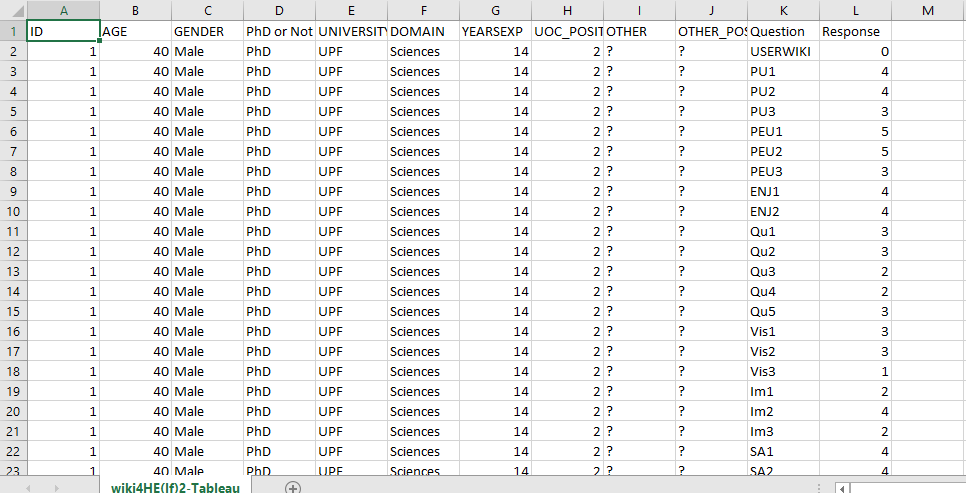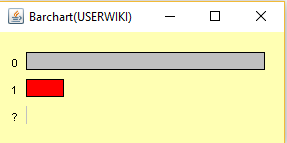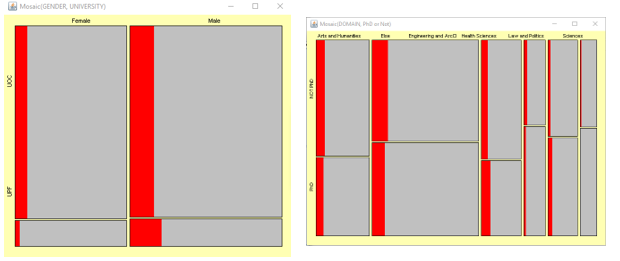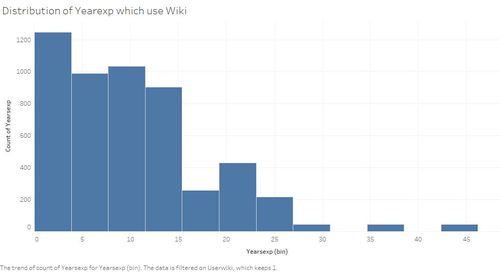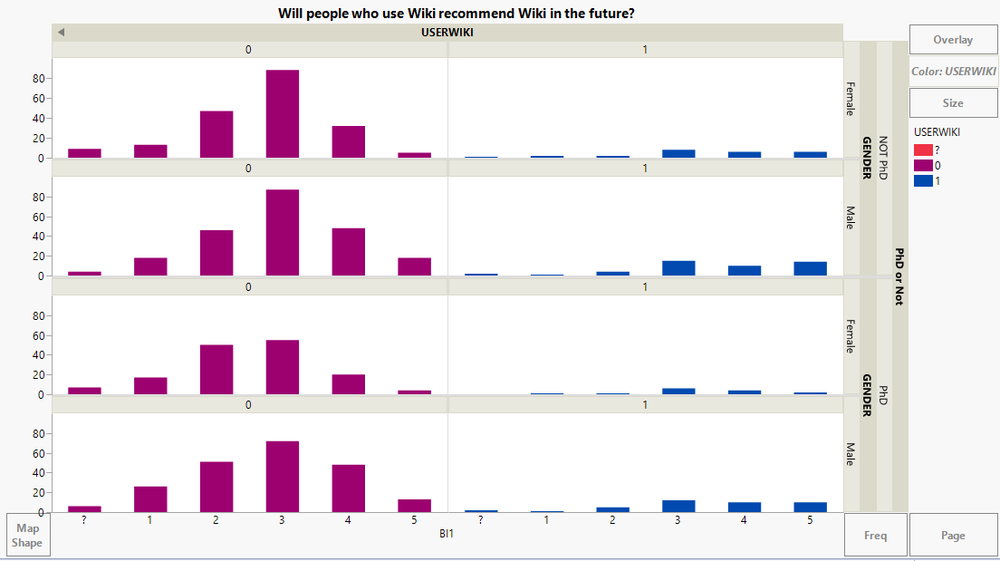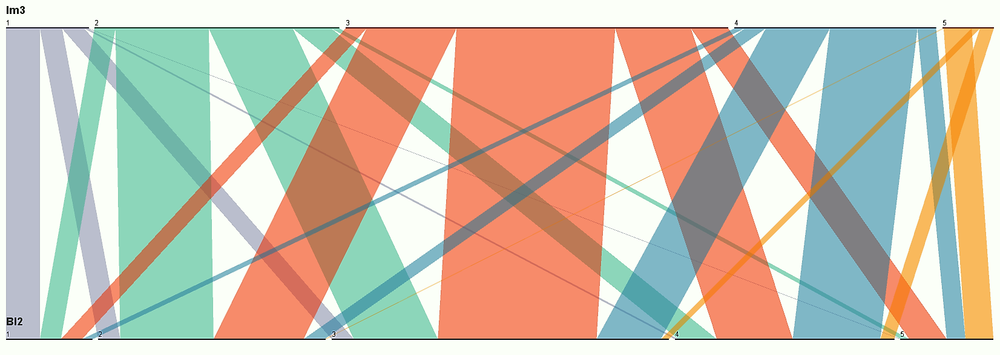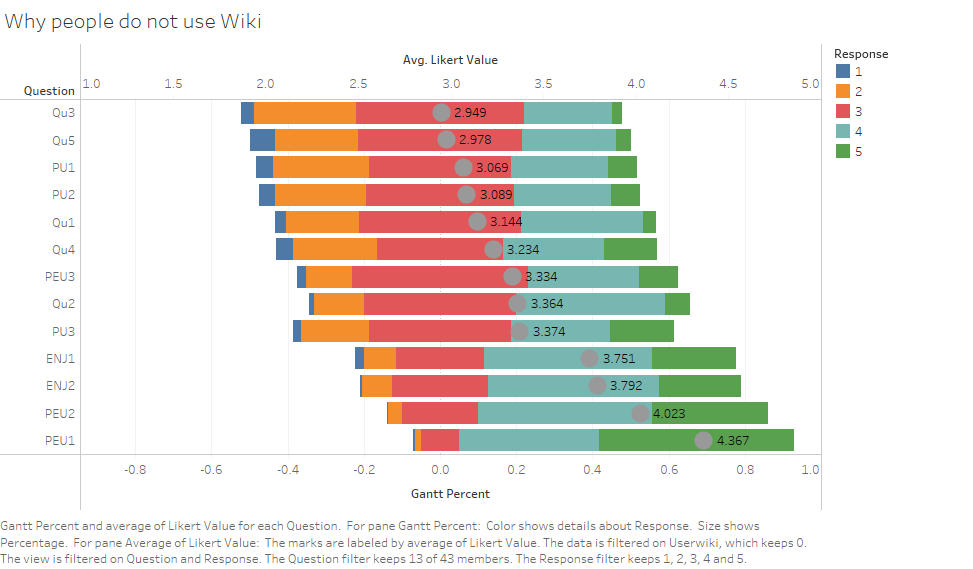ISSS608 2016-17 T1 Assign2 YANG Yuwei
Abstract
Using Wikipedia as a teaching tool is an activity that goes beyond a simple addition to the teaching repertoire, and allows contributing to our society through service learning and participation in an online community of practice. Contributing to Wikipedia benefits students, instructors and the wider community. In this project, I’d like to construct visualization to make our readers easily understand the situation of using Wikipedia.
Reference:http://firstmonday.org/article/view/3583/3313
Theme and Problems
In this project, I will focus on the situation of using Wikipedia. Based on the theme, I will discuss some question as follow:
- What kind of people use Wikipedia?
- What kind of people use Wikipedia?
- What kind of issue is people regards as important in Wikipedia?
- Will people who used Wiki recommend other people to use Wiki in the future?
- Will people be influenced by people around?
- Why people do not use Wiki?
Dataset
Data description
The dataset I used is from UCI, named wiki4HE which is a research on university faculty perceptions and practices of using Wikipedia as a teaching resource. It contains 913 instances and 53 attributes, which includes the information of the interviewee (demographic questions) and the perception about Wikipedia of interviewee (Likert scale questions). The raw data showed as below.
Data preparation
First, I define new columns of Gender, PhD or Not, University and Domain by using IF function in JMP. I convert the original numerical data to text(character type).
Then, In order to get easier to explore the data and build visualizations, I want to reshape the data.
- Give each interviewee a n unique ID.
- Then, using Excel and the Tableau reshaping add-in to create two new columns, one is Likert Question, the other is Likert Response.
Excel workbook that contains reshaped data that looks like this:
Notice that there is a separate row for each question in the survey and that the ID, Age, Gender, PhD or Not, University and Domain data is repeated for each survey interviewee. This is what is called “normalized” data.
Approaches
Overview of people who use Wikipedia.
From the three figures above, we can easily find that: The domain which has the least proportion of use Wiki is Sciences, while there is no PhD use Wiki in Sciences domain. There are two domains (Law & Politics and Health Sciences) have more people use Wiki in PhD than people who are not PhD. Regards to the two different University, it is obviously that the number of interviewee from UOC is more than the number of interviewee from UPF, but the proportion of using Wiki from two different universities is almost the same. At the same time, we can find that for different university, the usage of Wiki for different gender is same. For both university, the number of male user is more than the number of female user, especially in UPF.
Then, we come to the relationship between the years of university teaching experience and number of Wiki user. From the chart above, there is a negative correlation between the years of university teaching experience and number of Wiki user, which means along with the longer of teaching years is, the desire of using Wiki is decreasing.
Overview of Likert Question score.
From the chart above, it gives us an overview of each Likert question. Based on the score of each question, we can find the top three question which people are strongly agree. These are “It is important that students become familiar with online collaborative environments” (Likert Value 4.38), “Wikipedia is user-friendly” (Likert Value 4.36) and “It is important to share academic content in open platforms” (Likert Value 4.19) respectively. According to this phenomena, we can consider that people think share academic content in open platforms is useful and important, and also think collaboration among students is very important. In the meanwhile, we can find the top three question which people are strongly disagree. “I contribute to Wikipedia (editions, revisions, articles improvement...)” (Likert Value 1.59), “I use Wikipedia as a platform to develop educational activities with students” (Likert Value 1.83) and “I cite Wikipedia in my academic papers” (Likert Value 2.03) respectively. According to this phenomena, we can consider that though people prefer share in open platform, they actually contribute less.
Will people who use Wiki recommend Wiki in the future?
Will people be influenced by people around?
Why people do not use Wiki?
Tool Utilized
- Microsoft Excel: Reshape Data
- JMP: Trellis Plot
- Tableau: Bar Chart, Divergent bar chart
- Mondrian: Mosaic plot
- Parallel Sets: Parallel Sets
